News
A Country In Search Of A Miracle By Reuben Abati
“You look tired”
“Ha, my brother. Thanks for being observant. I have been trekking.”
“Trekking?”
“I went to buy fuel at that fuel station by the Estate gate. I had to abandon the car there. On my way back home, I could not find okada or any other form of transportation.”
“All the tricyclists and the okada people claim they have no fuel.”
“It is good for you big men to have a taste of what poor people go through. This fuel scarcity is an effective leveler. It is no respecter of persons.”
“I can’t wait for April 7 to come.”
“What’s special about April 7?”
“That’s the day we are told this scarcity will end, and there will be no more scarcity of petroleum products.”
“You mean a government official actually made such a promise?”
“Yes”
“Then, that official still has a lot to learn. In this kind of matter, you must never give a deadline because you never know. Nigerians will record the date, pretend to be optimistic and wait for you. If you don’t deliver on the said date, you will be branded an incompetent liar!”
“Really?”
“Trust me. Never set a deadline. Never say things such as we will put an end to the Boko Haram menace by June ending. We will deliver 10, 000 MW of electricity by December, and there will be fuel across the country by so-so-and-so date?”
“But I think April 7 is a sure date”
“I like your optimism. You mean by April 7, the pipeline vandals would have stopped stealing?”
“Some concerned Nigerians, particularly Pastors, I understand have been helping the Federal Government to appeal to vandals. They have been telling the vandals that it is not a good thing to steal petrol that belongs to all of us.”
“You want to stop oil theft and pipeline vandalism by preaching? Does anyone know who the vandals are?”
“You know we are a religious nation. When everything fails, we preach. I won’t be surprised to hear that any pipeline vandal who repents will be recommended for a National Honour!”
“In that case, what are you still doing here? You too should become a pipeline vandal, repent and get honoured. Or you don’t want a national honour?”
“Actually, I’d rather ask the vandals to give me fuel from their private depots, so I won’t have to face the stress of looking for fuel.”
“But I thought we were depending on the importation of refined petroleum products. Where are the major marketers?”
“They are there, but they say they can’t help because market forces are now obeying command-and-control, centralized orders which are not good for business.”
“I know. I know. The climate has changed. There is no more free money to share in the name of subsidy. Let the marketers continue to grumble. You know, sometimes I actually feel that if the NNPC can quickly get its acts together and Nigerians can endure a little, this may actually be our opportunity to free Nigerians from the threat of oil marketers.”
“What threat? The marketers are doing business. If the refineries work and fuel supply across the country is well managed, we should not be in this situation. If you frustrate the marketers, whose crime is that they feed off state inefficiency, and you have no alternative in place, this is what you get. The issue is also one of ideological confusion between capitalism and socialism.”
“It is a shame that at a time the international price of crude oil is dropping, Nigerians are having to pay an arm and a leg to get fuel. Right now, a litre of fuel is about N250”.
“It’s more. That is if you get it to buy.”
“Wait a moment. You are panting. What’s that wheezing sound? You may need to see a doctor.”
“I can’t remember when last I trekked.”
“Fuel scarcity is good for you then?”
“How can this suffering be good for anybody? Do you know how many families are now treating heat rash? Not to talk of hundreds of Nigerians who have died looking for fuel?”
“Just see a doctor. If you trek for about 1,000 metres and you are now looking like you want to pass out, then for you fuel scarcity is a major help. If you didn’t have to look for fuel, you’d be dying slowly and you may never know. I think every big man should in fact go look for fuel and trek a little, and listen to the people on the street. Good exercise.”
“You must be joking”
“Well, as it is, it is the poor who are benefitting from the crisis. Many lower class Nigerians now trek to work. They can’t afford the high cost of transportation, so they just hit the road with their feet.”
“You must be kidding me”.
“Two days ago, I saw a long stretch of trekkers, returning from work, moving from Victoria Island to the Mainland, looking like they have accepted their fate.”
“Too much trekking can kill.”
“Looks like that former Minister who once recommended that Nigerians should use the bicycle is about to be vindicated at last. The bicycle will be our best bet under the circumstances.”
“Stop being funny. Families will use the bicycle to take children to school? Or Madam will go to the market riding a bicycle?”
“Nigerians must learn to embrace change. Our problem is that we don’t always see the good sides of everything. Are you aware that this fuel scarcity crisis has created many jobs?”
“You mean it has resulted in many job losses. With the rise in the cost of goods and services, many companies have had to lay off staff. If you spend half of your profit on generating electricity and buying fuel at cut-throat rates, you’d have sooner or later to cut costs. The first casualties are the workers. Even big companies can no longer pay salaries. Small and medium scale enterprises are folding up.”
“In your estate?”
“What do you mean in my estate?”
“Because you see in this life, when some people are crying, some people are smiling. All those boys selling black market fuel in jerry cans by the roadside, I hear they are praying that there should always be fuel scarcity. Many of them are now multi-millionaires.”
“Profiting from other people’s agony. Is that your understanding of how a proper economy works?”
“I am an optimist. Those boys selling fuel are very happy. If there is regular supply of fuel tomorrow, they wont’ be happy.”
“Please stop this cynicism.”
“Cynicism? Look, if this thing continues beyond April 7, don’t be surprised if you see me by the roadside also hawking fuel in jerry cans. I will add some swag to my own; organize the jerry cans nicely and put up a visible sign-board with the inscription: NNPC Mega Station! I have been making enquiries.”
“Your mates are aspiring to own fuel stations, become major marketers, or even own oil fields, your ambition is to sell fuel in jerry cans.”
“Some of those boys selling fuel in jerry cans are university graduates. I did my research. You do yours.”
“You are exaggerating”
“No, I am not. You mean you have not seen Ph.D holders in this country who are working as drivers or running pepper soup joints or selling pure water? You better change your mentality. My friend, try and change.”
“It is not that bad, please.”
“Okay. Are you aware that many graduates are ready to join the Nigeria Police as constables? And they will be glad to be posted to checkpoints where they can check vehicle particulars, and the pockets of motorists.”
“Pockets?”
“Yes. Why do you think there has been such a massive rush for jobs in the Nigeria Police. The Police recently placed an advert asking for applications. The two websites for online application crashed within 4 hours.”
“Wonderful.”
“They are looking for just 10, 000 new recruits. They received more than 8, 000 applications within one hour. If the portals did not crash, there would have been over a million applications.”
“Na wa o”
“Na wa ya o. We really need a miracle to happen.”
“No fuel. No electricity. No rainfall, either, as if God is holding on to the rains. Everywhere is so hot. I hardly sleep at night.”
“I still think you should see the doctor. And luckily for you, you may not have to pay the hospital.”
“How do you mean?”
“The Minister of Health has just directed all teaching hospitals and government-owned hospitals to treat patients free of charge.”
“Indigent patients or every patient?”
“We are all indigent, my friend.”
“But I don’t know why you take the Minister serious. You and I know he is just talking. No hospital will listen to him. And by the way, is he in a position to give such directives to state-owned hospitals? Even the ones owned by the Federal Government, do they have enough funds to embark on free healthcare? Government officials just must talk.”
“You can’t say that until you find out.”
“No. I don’t need to find out. I know.”
“Just take care of your health. I don’t want it said that you slumped while looking for fuel.”
“I’ll be fine”.
“Nigeria too will be fine. You remember that baby girl who was shown looking malnourished, and emaciated four months ago. Adacheka. And the boy now called Hope who was found in Akwa Ibom, left for dead, emaciated and sickly, in January. When I see the pictures of both children and how they have been saved, I think of our country, Nigeria. Miracles still happen.”
“I don’t believe in miracles any more.”
“Why not? Nigeria will soon start operating on nuclear energy level.”
“Really? People look for miracles when they are desperate or losing hope. In football, for example, Nigerians are looking for miracles right now. The Super Eagles have disappointed the nation. Indigenous coaches have failed us. From Stephen Keshi, to Austin Eguavoen, Samson Siasia and Sunday Oliseh, no hits, back to back, all na failure.”
“You don’t become a successful coach and manager just because you once captained a team. You need technical skills. You need the right people.”
“That-is-the-point!”
News
Wole Olanipekun, Taiwo Oyedele Urge South-West Governors to Maximise Tinubu Presidency for Regional Growth
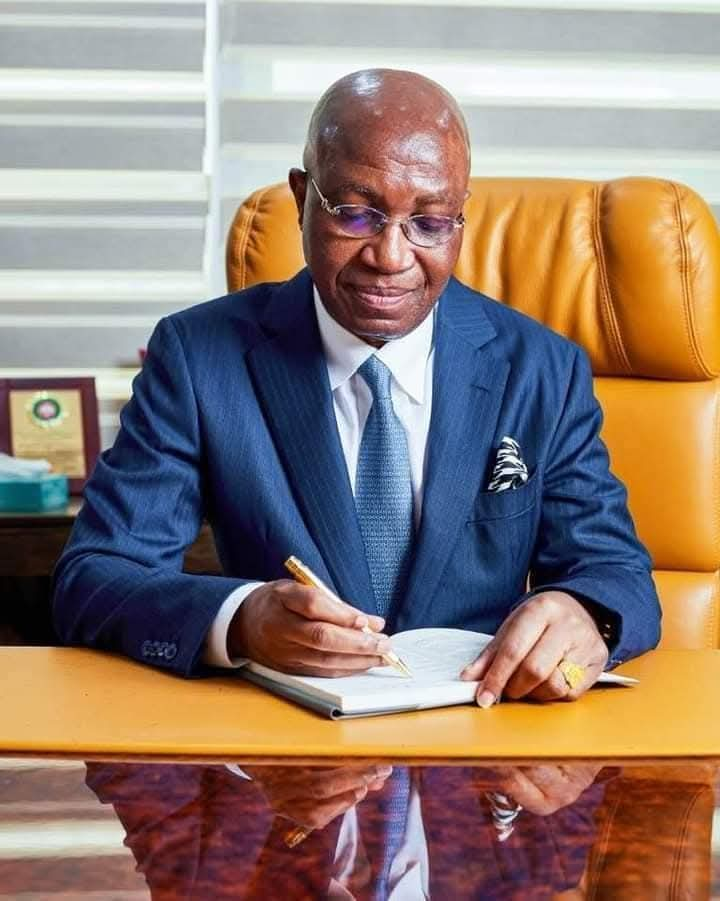
Senior Advocate of Nigeria (SAN), Wole Olanipekun, and Chairman of the Presidential Fiscal Policy and Tax Reforms Committee, Taiwo Oyedele, have called on South-West governors and political leaders to fully leverage President Bola Tinubu’s administration to drive accelerated development across the region.
The duo made the call on Monday in Akure, Ondo State capital, while speaking at a public lecture organised as part of activities marking the 50th anniversary of Ondo State’s creation.
They stressed that the South-West must prioritise massive investments in infrastructure, industrialisation, and economic reforms during Tinubu’s tenure to secure long-term regional prosperity.
Olanipekun cautioned that the political advantage of having a South-West president is temporary, noting that President Tinubu’s tenure will come to an end after his second term in 2031.
According to him, the region must act decisively within this window to strengthen its economic base and ensure sustainable development beyond the current administration.
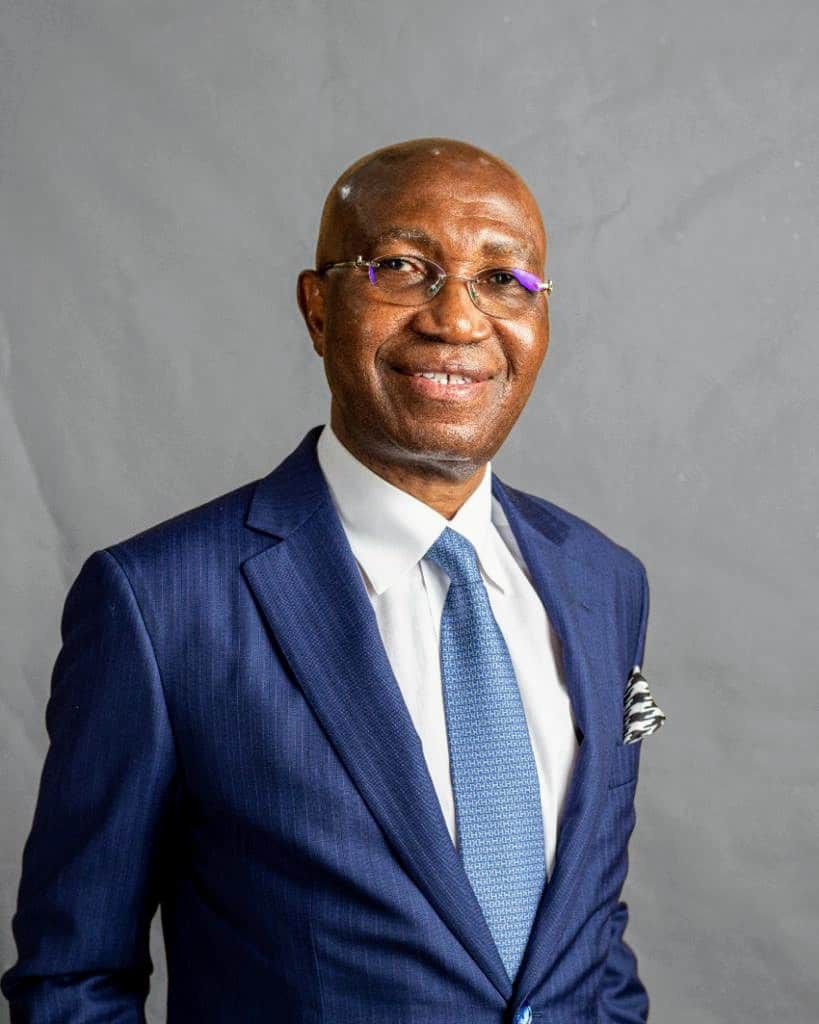
News
BREAKING: Malami Tells Court He Earned ₦12bn+ Legitimately, Seeks Release of Seized Properties
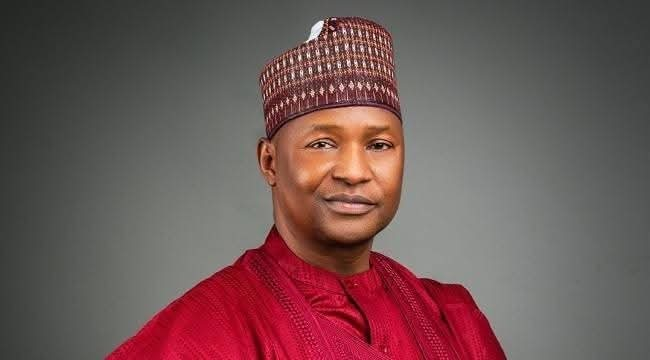
Former Attorney-General of the Federation, Abubakar Malami (SAN), has disclosed details of his earnings while asking a Federal High Court in Abuja to set aside an interim order authorising the seizure of 57 properties allegedly linked to him.
Malami made the disclosure through his counsel, Joseph Daudu (SAN), in a motion on notice filed before the court. The application seeks to vacate an interim forfeiture order affecting three of the 57 properties currently under investigation by the Economic and Financial Crimes Commission (EFCC).
According to the court filing, Malami stated that he had fully and transparently declared his sources of income in his asset declaration submitted to the Code of Conduct Bureau (CCB).
The document outlined multiple income streams, including:
₦374.63 million earned from salaries, estacodes, severance allowances, and related entitlements.
₦574.07 million generated from the disposal of personal assets.
₦10.01 billion recorded as turnover from private business ventures.
₦2.52 billion issued as loans to various businesses.
₦958 million received as traditional gifts from personal friends.
₦509.88 million realised from the launch and public presentation of his book titled “Contemporary Issues on Nigerian Law and Practice: Thorny Terrains in Traversing the Nigerian Justice Sector – My Travails and Triumphs.”
Malami’s legal team argued that the declared earnings sufficiently explain the source of funds used to acquire the properties in question, urging the court to lift the interim seizure order.
The matter remains pending before the Federal High Court as the EFCC continues its forfeiture proceedings.
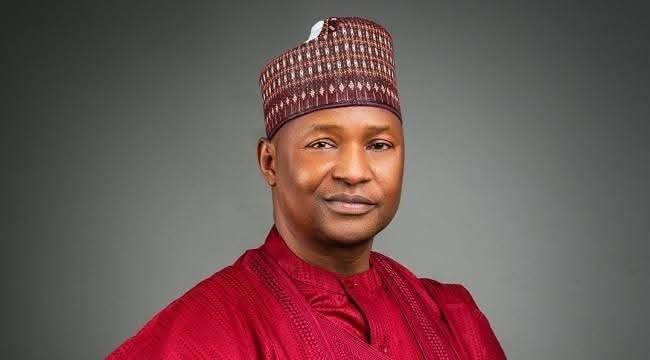


News
MAN Urges Federal Government to Stop NAFDAC’s Sachet Alcohol Ban, Warns of ₦1.9 Trillion Loss
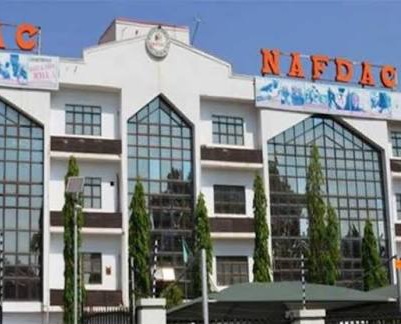
The Manufacturers Association of Nigeria has appealed to the Federal Government to restrain the National Agency for Food and Drug Administration and Control from proceeding with its ban on alcoholic beverages packaged in sachets and small PET bottles, warning of catastrophic economic consequences.
In a statement issued by Director-General Segun Ajayi-Kadir, MAN described NAFDAC’s renewed enforcement action as detrimental to indigenous industrial operators and fundamentally inconsistent with earlier government directives.
The manufacturers’ body emphasized that NAFDAC’s recent move directly contradicts the House of Representatives resolution dated March 14, 2024, which specifically restrained the agency from implementing the punitive ban following comprehensive stakeholder consultations through a public hearing.
“Rather than abiding by the generally agreed resolution, NAFDAC bided its time and chose to rely on a resolution of the Senate that was devoid of the usual stakeholders’ engagement,” Ajayi-Kadir stated, noting that operators now face confusion over conflicting directives from different arms of government.
MAN warned that enforcing the ban would devastate Nigeria’s manufacturing sector, threatening over ₦1.9 trillion in existing investments and triggering the retrenchment of more than 500,000 direct employees alongside approximately five million workers in the indirect value chain.
The association cautioned that the restriction would paradoxically undermine public health by creating market opportunities for illicit, substandard and unregulated products beyond the control of regulatory authorities.
“This is counterproductive as it will open up the market for illicit, sub-standard, and unregulated products. It will lead to an influx of imported alternatives, mostly smuggled. It will deny the government of revenues collectable from the companies,” Ajayi-Kadir declared.
The manufacturers’ group emphasized that alcohol served in sachets by local producers is manufactured under hygienic conditions and certified by regulatory agencies including NAFDAC itself, making the ban particularly contradictory.
MAN also challenged the untested assertion that sachet alcohol drives underage consumption, citing credible and empirical research that contradicts this claim. The industry has independently invested over ₦1 billion in nationwide media campaigns promoting responsible alcohol consumption and discouraging underage abuse.
The association stressed that banning certified products would deny adult consumers with limited budgets access to regulated alcoholic beverages while simultaneously depriving the government of substantial tax revenues.
Food, Beverages and Tobacco Senior Staff Association and National Union of Food, Beverages and Tobacco Employees have joined MAN in opposing the ban, demanding that NAFDAC provide empirical evidence that sachet alcoholic beverages are being consumed by children.
Labor unions have called for the suspension of NAFDAC Director-General Professor Mojisola Adeyeye, accusing her of siding with multinational companies to undermine local manufacturers.
However, NAFDAC has maintained its position, with Adeyeye insisting that enforcement is backed by law following the Senate’s unanimous resolution setting a December 2025 deadline that has now passed.
The NAFDAC chief argued that the proliferation of high-alcohol-content beverages in sachets has made such products easily accessible, affordable and concealable, contributing to widespread misuse and addiction among minors and commercial drivers.
“This public health menace has been linked to increased incidences of domestic violence, road accidents, school dropouts, and social vices across communities,” Adeyeye stated, describing the ban as protective rather than punitive.
In contrast, civil society organization Socio-Economic Rights and Accountability Project has approached the Federal High Court in Lagos seeking injunctive orders to prevent the Federal Government from interfering with NAFDAC’s statutory powers to enforce the ban.
SERAP argues that continued circulation of sachet alcohol violates the National Health Act 2014, the NAFDAC Act and international commitments under the World Health Organization’s Global Strategy to Reduce Harmful Use of Alcohol.
The legal and economic battle over sachet alcohol highlights deeper tensions between public health regulation, economic survival and stakeholder consultation in Nigeria’s policymaking process, with no clear resolution in sight as multiple court cases and regulatory actions unfold simultaneously.
-

 News2 years ago
News2 years agoHardship: We Plan To Establish A National Commodity Board To Crash Food Prices – VP Shettima
-
News8 years ago
Blog Reader; Samson Osagiede Celebrates Fiancè Benedicta Daniels’s Birthday With Sweet Words
-
Home9 years ago
News Channel claims Donald Trump is an orphan from Pakistan,share alleged childhood photo
-
Home9 years ago
Another $175m Found in Patience Jonathan’s wife’s firm’s Bank Account
-
Home9 years ago
Oil Spillage: House of Reps Member Shares Photos of the Water her Constituents Drink .
-
Home9 years ago
Zara Buhari & Ahmed Indimi’s Wedding Access Card
-

 Sport7 years ago
Sport7 years agoModric, Marta Wins 2018 FIFA Best Player Of The Year Awards ⚽️
-
News8 years ago
The Best Video You’ve Seen Today?

